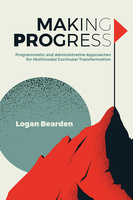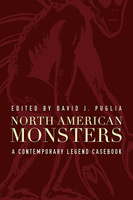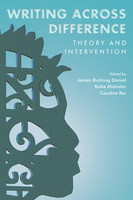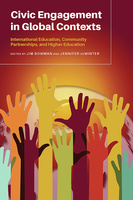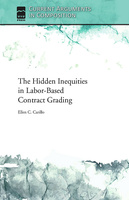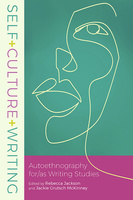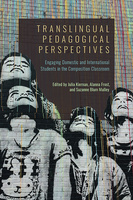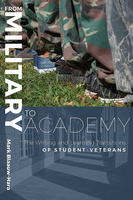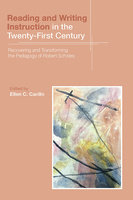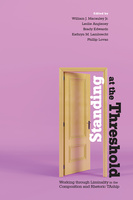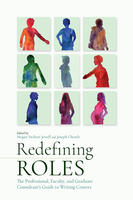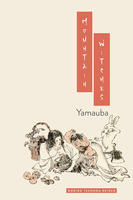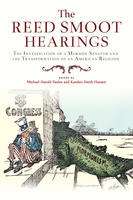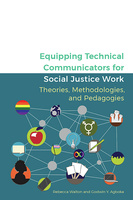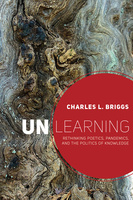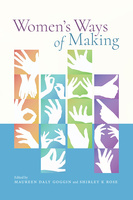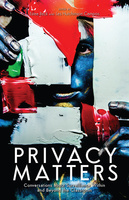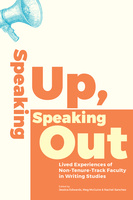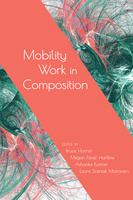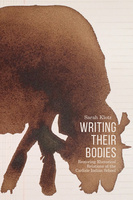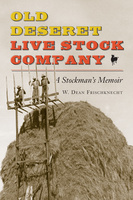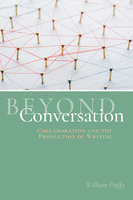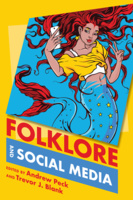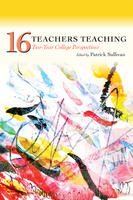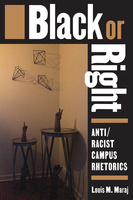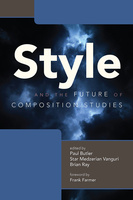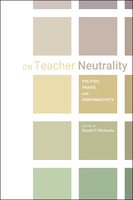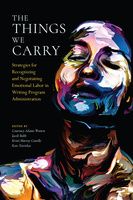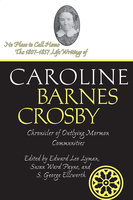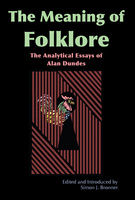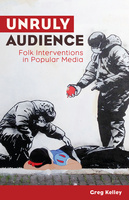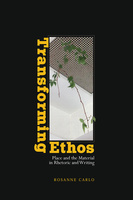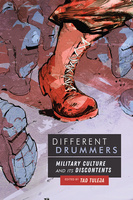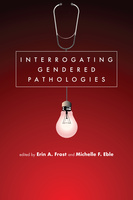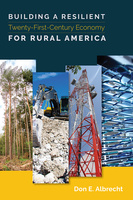Making Progress
Programmatic and Administrative Approaches for Multimodal Curricular Transformation
North American Monsters
A Contemporary Legend Casebook
Mining a mountain of folklore publications, North American Monsters unearths decades of notable monster research.
Stories of Becoming
Demystifying the Professoriate for Graduate Students in Composition and Rhetoric
Based on findings from a multiyear, nationwide study of new faculty in the field of rhetoric and composition, Stories of Becoming provides graduate students—and those who train them—with specific strategies for preparing for a career in the professoriate.
Transformations
Change Work across Writing Programs, Pedagogies, and Practices
This edited volume offers strategies for implementing large- and small-scale changes in writing programs by focusing on transformations—the institutional, programmatic, curricular, and labor practices that work together to shape our teaching and learning experiences of writing and rhetoric in higher education.
Civic Engagement in Global Contexts
International Education, Community Partnerships, and Higher Education
This volume examines the role of writing, rhetoric, and literacy programs and approaches in the practice of civic engagement in global contexts.
Queerly Centered
LGBTQA Writing Center Directors Navigate the Workplace
Queerly Centered explores writing center administration and queer identity, showcasing nuanced orientations to LGBTQA labor undertaken but not previously acknowledged or documented in the field’s research.
Self+Culture+Writing
Autoethnography for/as Writing Studies
Self+Culture+Writing foregrounds the possibility of autoethnography as a viable methodological approach and provides researchers and instructors with ways of understanding, crafting, and teaching autoethnography within writing studies.
Translingual Pedagogical Perspectives
Engaging Domestic and International Students in the Composition Classroom
Translingual Pedagogical Perspectives addresses the movement toward translingualism in the writing classroom and demonstrates the practical pedagogical strategies faculty can take to represent both domestic and international monolingual and multilingual students’ perspectives in writing programs.
From Military to Academy
The Writing and Learning Transitions of Student-Veterans
Providing meaningful research into the ways adult learners bring their knowledge to the classroom, From Military to Academy offers new ways of thinking about pedagogy beyond the “traditional” college experience.
Reading and Writing Instruction in the Twenty-First Century
Recovering and Transforming the Pedagogy of Robert Scholes
In Reading and Writing Instruction in the Twenty-First Century contemporary scholars explore and extend the continued relevance of Scholes’s work for those in English and writing studies.
Standing at the Threshold
Working through Liminality in the Composition and Rhetoric TAship
Redefining Roles
The Professional, Faculty, and Graduate Consultant’s Guide to Writing Centers
Redefining Roles is the first book to recognize and provide sustained focus on the presence of professional, faculty, and graduate student consultants in writing centers.
Mountain Witches
Yamauba
Mountain Witches is a comprehensive guide to the complex figure of yamauba—female yōkai often translated as mountain witches, who are commonly described as tall, enigmatic women with long hair, piercing eyes, and large mouths that open from ear to ear and who live in the mountains—and the evolution of their roles and significance in Japanese culture and society from the premodern era to the present.
The Reed Smoot Hearings
The Investigation of a Mormon Senator and the Transformation of an American Religion
This book examines the hearings that followed Mormon apostle Reed Smoot’s 1903 election to the US Senate and the subsequent protests and petitioning efforts from mainstream Christian ministries disputing Smoot’s right to serve as a senator.
Equipping Technical Communicators for Social Justice Work
Theories, Methodologies, and Pedagogies
Equipping Technical Communicators for Social Justice Workprovides action-focused resources and tools—heuristics, methodologies, and theories—for scholars to enact social justice.
Unlearning
Rethinking Poetics, Pandemics, and the Politics of Knowledge
A provocative theoretical synthesis by renowned folklorist and anthropologist Charles L. Briggs, Unlearning questions intellectual foundations and charts new paths forward. Briggs argues, through an expansive look back at his own influential works as well as critical readings of the field, that scholars can disrupt existing social and discourse theories across disciplines when they collaborate with theorists whose insights are not constrained by the bounds of scholarship.
Women’s Ways of Making
Women’s Ways of Making draws attention to material practices—those that the hands perform—as three epistemologies—an episteme, a techne, and a phronesis—that together give pointed consideration to making as a rhetorical embodied endeavor.
Privacy Matters
Conversations about Surveillance within and beyond the Classroom
Privacy Matters examines how communications and writing educators, administrators, technological resource coordinators, and scholars can address the ways surveillance and privacy affect student and faculty composing, configure identity formation, and subvert the surveillance state.
Speaking Up, Speaking Out
Lived Experiences of Non-Tenure-Track Faculty in Writing Studies
Speaking Up, Speaking Out addresses the lived experiences of those working in the non-tenure-track faculty (NTTF) trenches through storytelling and reflection.
Mobility Work in Composition
Mobility Work in Composition explores work in composition from the framework of a mobilities paradigm that takes mobility to be the norm rather than the exception to a norm of stasis and stability.
Mapping Racial Literacies
College Students Write about Race and Segregation
Based on a mixed methods study of students’ writing in a first-year-writing course themed around racial identities and language varieties at St. John’s University, Mapping Racial Literacies shows college student writing that directly confronts lived experiences of segregation—and, overwhelmingly, of resegregation.
Writing Their Bodies
Restoring Rhetorical Relations at the Carlisle Indian School
Writing Their Bodies analyzes pedagogical philosophies and curricular materials through the perspective of written and visual student texts created during the school’s first three-year term.
Beyond Conversation
Collaboration and the Production of Writing
Collaboration was an important area of study in writing for many years, but interest faded as scholars began to assume that those working within writing studies already “got it.” In Beyond Conversation, William Duffy revives the topic and connects it to the growing interest in collaboration within digital and materialist rhetoric to demonstrate that not only do the theory, pedagogy, and practice of collaboration need more study but there is also much to be learned from the doing of collaboration.
Folklore and Social Media
Ten years after the publication of the foundational edited collection Folklore and the Internet, Andrew Peck and Trevor J. Blank bring an essential update of scholarship to the study of digital folklore, Folklore and Social Media.
Sixteen Teachers Teaching
Two-Year College Perspectives
Sixteen Teachers Teaching is a warmly personal, full-access tour into the classrooms and teaching practices of sixteen distinguished two-year college English professors.
Black or Right
Anti/Racist Campus Rhetorics
Black or Right: Anti/Racist Campus Rhetorics explores notions of Blackness in white institutional—particularly educational—spaces.
Style and the Future of Composition Studies
Style and the Future of CompositionStudies explores style’s potential for informing how students are taught to write well and its power as a tool for analyzing the language and discourse practices of writers and speakers in a range of contexts.
On Teacher Neutrality
Politics, Praxis, and Performativity
On Teacher Neutralityexplores the consequences of ideological arguments about teacher neutrality in the context of higher education.
The Things We Carry
Strategies for Recognizing and Negotiating Emotional Labor in Writing Program Administration
Emotional labor is not adequately talked about or addressed by writing program administrators. The Things We Carry makes this often-invisible labor visible, demonstrates a variety of practical strategies to navigate it reflectively, and opens a path for further research.
No Place To Call Home
The 1807-1857 Life Writings of Caroline Barnes Crosby, Chronicler of Outlying Mormon Communities
Meaning of Folklore
The Analytical Essays of Alan Dundes
Unruly Audience
Folk Interventions in Popular Media
Unruly Audience explores grassroots appropriations of familiar media texts from film, television, stand-up comedy, popular music, advertising, and tourism.
Transforming Ethos
Place and the Material in Rhetoric and Writing
In Transforming Ethos Rosanne Carlo synthesizes philosophy, rhetorical theory, and composition theory to clarify the role of ethos and its potential for identification and pedagogy for writing studies.
Different Drummers
Military Culture and Its Discontents
Different Drummers explores the disjunction between organizational solidarity and individual pushback in military organizations, examining how members of the armed forces express ambivalent attitudes about their service.
Interrogating Gendered Pathologies
Interrogating Gendered Pathologies points out and critiques unjust patterns of pathology.
Building a Resilient Twenty-First-Century Economy for Rural America
In Building a Resilient Twenty-First-Century Economy for Rural America, Don E. Albrecht visits rural communities that have traditionally been dependent on a variety of goods-producing industries, explores what has happened as employment in these industries has declined, and provides a path by which they can build a vibrant twenty-first-century economy.

